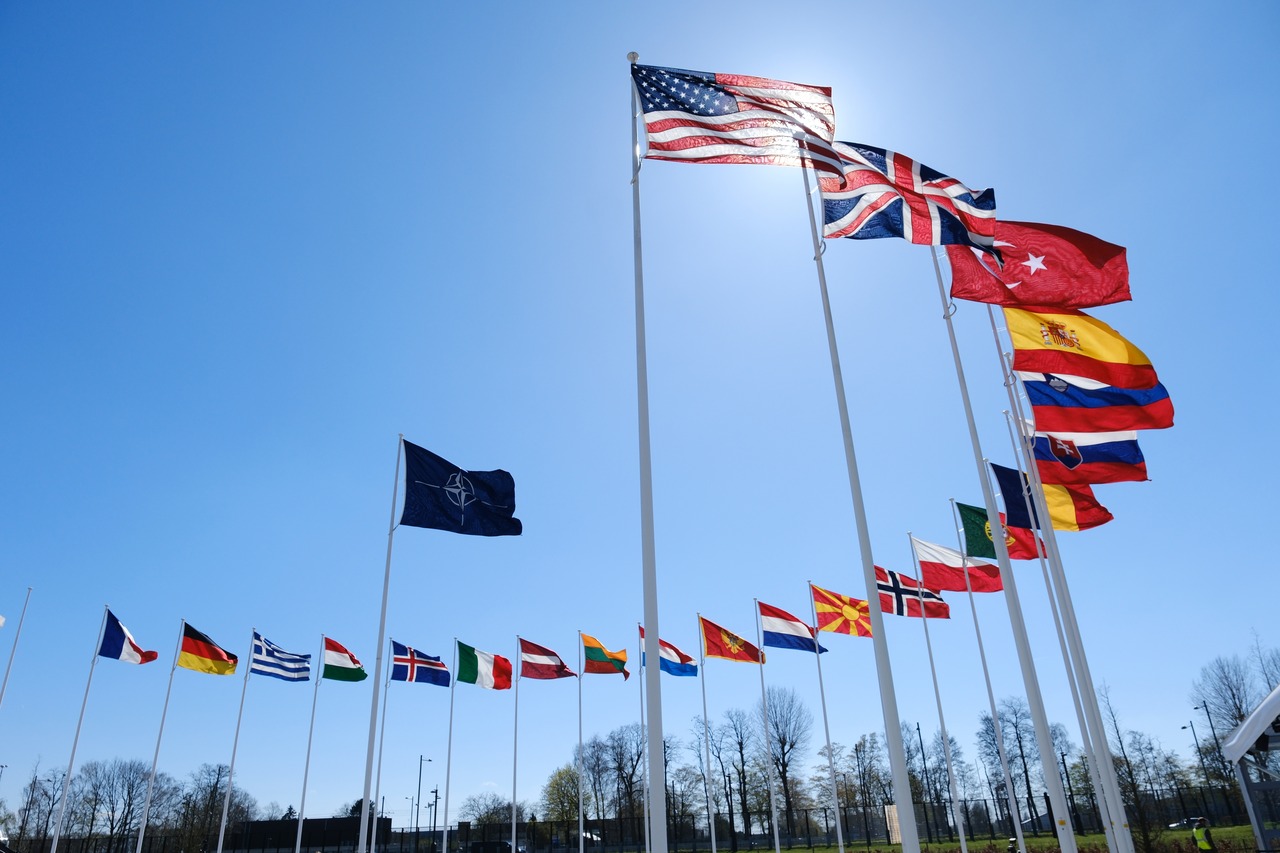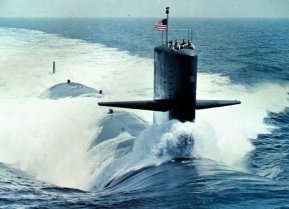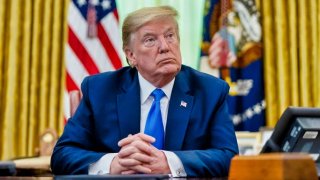The Case for Donald Trump’s “Peace Through Strength” Foreign Policy
In this exceptionally dangerous moment in history, the American people demand strategic clarity and tough national security leadership. Who do you trust to deliver on this, Trump and JD Vance or Harris and Walz?
Donald Trump’s critics accuse him of insulting America’s allies and weakening our alliances. They predict that under a second Trump administration, America would languish in isolationism to the detriment of American interests and world peace. The Biden-Harris administration, they claim, has been and will be better for relations with allies.
They are wrong. President Trump pushed hard on our European NATO allies to live up to their commitment of spending 2 percent of their GDP for their own defense. He also asked Japan and South Korea to contribute more toward the cost of keeping U.S. troops in Asia. The approach was untraditional, but many countries paid more for their defense, and our alliances and common security improved.
The policies of the Biden-Haris administration have not made our alliances stronger. This failure is particularly serious today when the global security environment is more dangerous than it has been in decades. The lack of strategic clarity has been particularly glaring. The Biden-Harris administration has failed to recognize that the combined threats from China, Russia, Iran, and North Korea, which together form the “Axis of Expansionists,” are America’s central national security challenge. Instead, they only offered the uninspiring vision of managing competition “responsibly.”
A second Trump administration would make the American people more secure by returning to a foreign policy of peace through strength that asks our allies to participate more in defending our common interests. Trump’s critics confuse fine speeches at international meetings with tough diplomacy to promote the interests of the American people.
The Axis of Expansionists
Russia has invaded Ukraine for a second time with the goal of ending its sovereign existence. The United States has an interest in the peace and prosperity of Europe, a major economic partner and a key strategic region. Iran is threatening the survival of Israel both directly and indirectly through its terrorist proxies, Hezbollah, Hamas, and the Houthis. Israel is America’s pivotal ally in the Middle East, a region whose oil exports and trade routes are critical to the world economy.
China is threatening to invade Taiwan, an economic and military partner of the United States in a strategic region. China is also engaging in naval provocations against the Philippines, a U.S. treaty ally. It has caused border clashes in disputed areas with Japan, another treaty ally, and India. China aims to dominate Asia, the most populous and economically dynamic continent, and the Pacific Ocean, America’s western border. North Korea has declared that the time for peaceful reunification with the South is over and that it has the right to annihilate South Korea, another U.S. treaty ally.
All these expansionist powers are nuclear (or near nuclear) powers that are rapidly and significantly increasing their military capabilities. Since the year 2000, Russian and Chinese defense spending has grown by 227 percent and 556 percent, respectively. Iran’s defense spending has increased since the Biden-Harris administration stopped enforcing the Trump-era economic sanctions. Iran has also used its newfound wealth to fund its terrorist proxies. North Korea, already a garrison state, promises to increase its nuclear capabilities.

Worse still, in a dangerous new development, these autocracies are openly supporting each other in their expansionist ambitions. China sells Russian machine tools and semiconductors that can be used in both civilian and military industries. China is Russia’s top trade partner, and their two leaders have met over forty times. China signed a twenty-five-year strategic accord with Iran in 2021 and is the main destination for Iran’s illicit oil exports. In 2024, China, Russia, and Iran held their fifth joint military exercise in the Gulf of Oman. Iran is also selling military equipment to Russia. North Korea has been selling ammunition to Russia and recently sent troops to Russia to fight against Ukraine. Russia is transferring advanced military technology to China, Iran, and North Korea in return. This is just a partial list.
The Biden-Harris Administration Failed to Strengthen Our Alliances
From its very start, the Biden-Harris administration set for itself a globalist foreign policy goal: promoting democracy around the world. It called renewing global democracy the “defining challenge of our time” and has organized three Summits of Democracy with over 100 countries. Using opaque criteria, the administration has excluded strategically important allies from these events that it considers insufficiently democratic, such as Thailand, Turkey, and Hungary. It also excluded a reliable partner (Egypt) but included a less reliable one (Pakistan).
As a result of this faulty focus on democracy promotion, the Biden-Harris administration did not pursue the alliance-strengthening goals demanded by our dangerous strategic environment.
In Asia, it did not call for a rapid and impactful increase in the defense spending of Taiwan, the country most at risk of war in that region. In 2025, Taiwan will spend 2.45 percent of its GDP on defense. This is not enough. Other frontline countries spend a lot more. In 2022, before the start of its current war, Israel was spending 4.5 percent, and Poland will spend 5 percent in 2025. The list goes on. In 2022, Japan made a historic decision to raise its defense spending from 1 to 2 percent of GDP by 2027. It is an admirable effort, but not enough in today’s environment. South Korea spent 2.7 percent in 2022. This was more than its neighbors, but nonetheless marks a slight decrease from 2.8 percent in 2021.
The Biden-Harris administration boasts of alliance successes in Asia, except that they were due to favorable circumstances rather than administration actions. The formation of AUKUS was a great outcome thanks to Australia’s decision to develop submarine technology and naval R&D with the United States and the UK rather than France. The U.S.-Japan-Korea summit at Camp David was the culmination of diplomacy extending throughout several administrations and was catalyzed by the worsening security environment in Asia and a policy turnaround on reparations by the new conservative government in Korea.
European NATO certainly became stronger after Sweden and Finland decided to join. But this was triggered by Putin’s aggression against Ukraine. Meanwhile, the Biden-Harris administration let up the pressure on European NATO members to live up to their 2014 commitment to spend 2 percent of their GDP on defense. Ten years later, only twenty-three of the thirty-two NATO members comply.

In the Middle East, the Biden-Harris administration started with a public spat with Saudi Arabia. The Trump administration’s 2020 Abraham Accords, the greatest success of American diplomacy since the opening to China in 1972, normalized Israel’s relations with the United Arab Emirates, Bahrain, and Morrocco. The agreement brought together Gulf Arab nations with Israel to deter Iranian expansionism and check growing Chinese influence in the region. The addition of Saudi Arabia would have been the next big win. Still, candidate Biden announced in 2019 that he wanted to make Saudi Arabia a “pariah” among nations because of its human rights record. He reversed himself and visited the country in 2022. Still, relations remained strained, and the Israel-Saudi Arabia normalization process was delayed by several years when the current Middle East war erupted.
An America First Alliance Policy
The bellicose actions of communist China and the Axis of Expansionists represent a serious threat to the security of the American people. A second Trump administration would enact a bold policy to mobilize the capabilities of our allies against these common adversaries.
Offer Strategic Clarity
President Biden’s 2022 National Security Strategy discusses China along with several other challenges, including “democratic backsliding” around the world, pandemics (“that worsen inequities”), and climate change (which President Biden considers “The only existential threat humanity faces even more frightening than a nuclear war…”).
China is not Vice President Harris’s top foreign policy concern, either. In her October 60 Minutes interview, when asked to name the greatest U.S. adversary, she named Iran—the only member of the Axis of Expansionists without nuclear weapons.
A second Trump administration would define China as a “formidable military and economic adversary.” It would start from the understanding that “the Chinese Communist Party, represents the most comprehensive threat to our national security since the fall of the Soviet Union three decades ago.” It would also recognize that nuclear or near-nuclear allies of China are coordinating their malign actions in an anti-American Beijing-Moscow-Tehran axis.
America must first achieve this strategic clarity for itself before it can become an effective leader for its allies.
Ask More from Economically Developed Allies and Help Developing Ones
A second Trump administration will insist that its allies spend a lot more for their national security. President Trump recently said that NATO members should spend at least 3 percent of their GDP on defense, a 50 percent increase over the current NATO agreement.
Allies who don’t take their own security seriously should expect less defense commitment from America. America’s participation in alliances should not be considered an unconditional commitment. The United States could reduce its troop presence in countries that choose not to invest in their own defense.


